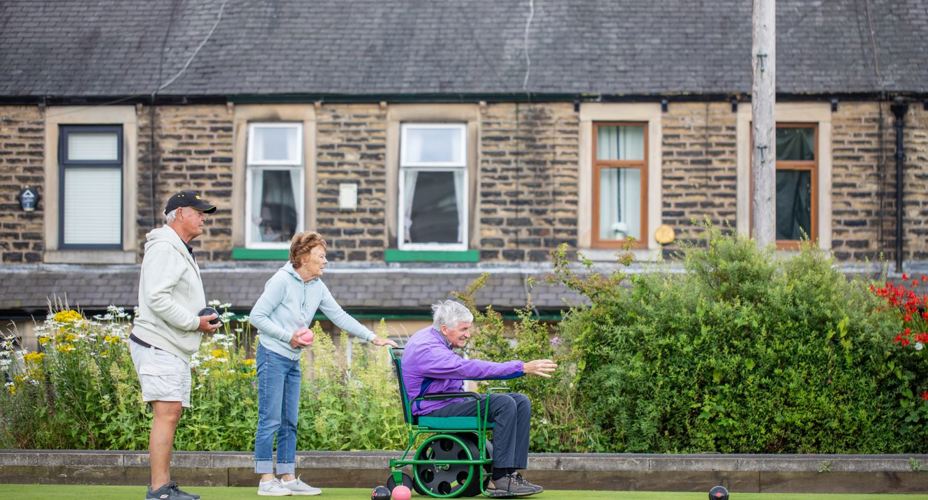Wednesday 17 04 2024

Older adults in Scotland, especially women and those living in deprived communities, are significantly less likely to participate in sports and physical activity as they age, according to a new study.
While walking remains a popular activity, organised sports participation drops dramatically after 65, with potential consequences for individual health and wellbeing.
This study reveals a dramatic decline in sports participation amongst older adults in Scotland, particularly after 65. By 75, only 28% of women and 48% of men are meeting recommended physical activity levels, excluding walking. This paints a concerning picture, especially considering the stark gender gap: nearly 70% of women over 75 are inactive.
The study, led by University of the West of Scotland (UWS), analysed data from the Scottish Health Survey and Scottish Household Survey, alongside participation figures from Parkrun events.
This research shines a light on the alarming decline in active ageing, which carries significant health consequences for our older population. Regular physical activity, beyond just walking, strengthens muscles, improves balance, and boosts mental well-being, all of which are crucial for maintaining independence and quality of life as we age.Professor Richard Davison, lead author from the University’s Research Centre for Culture, Sport, and Events
The study also reveals that individuals from more deprived communities are significantly less likely to be active, regardless of age.
While walking remains a popular choice, organised sports like swimming, keep fit, and golf offer valuable benefits beyond steps, including crucial balance-improving activities that help prevent falls.
One person who testifies to the effect of physical activity on older adults is keen golfer and lawn bowler, Linda Dyball.
As a member of two golf clubs in Dunfermline, Linda can regularly be found out on the links.
Staying active throughout my life has been very rewarding. From competitive swimming in my youth to picking up golf from the age of 14 and now bowling, sports have offered me not just physical benefits, but also a strong sense of community. My husband doesn’t play golf – he walks up mountains. We took up bowls because we wanted to do something together, so we started at the same time and are both actively involved with the club. It's fantastic to see how sport brings people together and helps people feel less isolated. I’ve introduced lots of people from my golf club to bowls, it’s a very sociable sport and it’s not too strenuous. We’re an aging population, we should celebrate the lifelong potential of sports and the positive impact they can have on our well-being.Keen golfer and lawn bowler, Linda Dyball
The study goes beyond the physical benefits, highlighting the positive impact of sports participation on tackling the often-overlooked issue of loneliness amongst older adults.
Social interaction and a sense of belonging, fostered by group activities and shared interests, can significantly combat feelings of isolation, a growing concern in our aging population. “By providing opportunities for connection and friendship, sports participation can offer a crucial lifeline, enhancing emotional well-being alongside physical health. “This underscores the need for initiatives that not only promote physical activity but also create inclusive and welcoming spaces for older adults to connect and build meaningful relationships, enriching their lives in more ways than one.Professor Richard Davison, lead author from the University’s Research Centre for Culture, Sport, and Events
A lack of long-term data makes it difficult to fully understand the impact of ageing and changing trends on activity levels. This knowledge gap hinders efforts to create targeted interventions and programs that could encourage older adults, especially women and those facing social barriers, to embrace a more active lifestyle.
Professor Davison continued: “While participation in sports and physical activity declines significantly with age, encouraging older adults to embrace an active lifestyle is crucial.
“By investing in targeted interventions, addressing social barriers, and promoting inclusive environments, Scotland can unlock a healthier, happier, and more active future for its older population.”